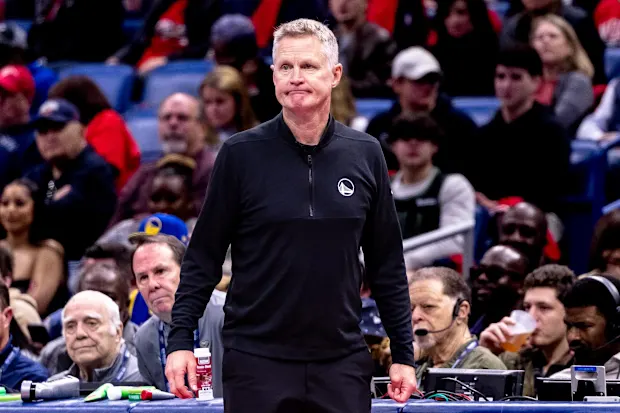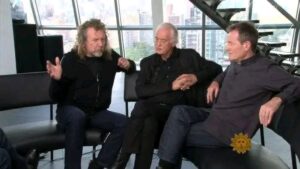
It is a reflection of the broader theme of leadership.

In a candid admission, Golden State Warriors head coach Steve Kerr recently acknowledged a critical mistake in his handling of Draymond Green during the 2023-2024 NBA season. Known for his typically calm and measured leadership style, Kerr’s open admission sheds light on the intricacies of team dynamics and the human side of coaching at the highest level.
For years, Kerr and Green have been at the heart of the Warriors’ success, a dynamic duo that helped lead the team to four NBA championships in a span of just a few years. Their relationship, built on mutual respect and understanding, has been vital in maintaining the cohesion of the team. But like any high-stakes partnership, there are moments of tension, miscommunication, and, at times, regret. Kerr’s recent remarks, revealing his reflection on a particular situation with Green, offer a glimpse into the complexities of coaching and leadership.
The Background of the Relationship.
Kerr’s bond with Draymond Green has always been strong, rooted in the player’s fiery passion and Kerr’s calm, strategic approach. Green, known for his emotional intensity and vocal leadership on the court, often serves as the Warriors’ emotional engine. His ability to push the team and hold his teammates accountable has made him a key figure in their success.
However, Green’s personality can also lead to challenges. His aggressive playing style and fiery temperament sometimes get him into trouble, both with referees and teammates. Over the years, Kerr has had to manage Green’s emotions, ensuring his passion translates into productivity without crossing the line into detrimental behavior.
The Mistake Kerr Acknowledges.
While Kerr has consistently praised Green’s contributions and leadership, the head coach’s recent admission centers around a specific moment in the 2023-2024 season where he felt he mishandled the situation. Kerr admitted that he could have done more to support Green during a period of frustration, where the player seemed to be struggling to find his rhythm both on the court and within the team structure.
In an interview, Kerr revealed that he had been too hard on Green during a slump, pushing him to perform at a higher level without fully understanding the underlying pressures Green was facing. The coach acknowledged that, in hindsight, he should have taken a more empathetic approach and provided Green with the space to process his challenges rather than immediately pushing him to get back to his best form.
This moment of self-reflection reveals Kerr’s growth as a leader. In an environment as high-pressure as the NBA, it can be easy for coaches to forget that players are not just athletes but individuals with their own mental and emotional struggles. Kerr admitted that in this instance, he failed to take into account the full scope of what Green was dealing with at that time.
Leadership and Growth.
Kerr’s willingness to publicly admit his mistake speaks volumes about his character as a coach and a leader. It is often said that the best leaders are those who can learn from their mistakes and grow from them. This moment of self-awareness is a testament to Kerr’s growth, not just as a coach but as a person. He recognizes that effective leadership isn’t just about achieving success on the court but about understanding and connecting with the players on a deeper level.
Moreover, Kerr’s transparency offers a valuable lesson for the players on his team. It reminds them that even someone with as much experience and success as Kerr is still learning, adapting, and evolving. This kind of humility fosters a positive and open team culture, where mistakes are acknowledged and used as opportunities for growth.
The Bigger Picture: A Reflection of Team Dynamics
This admission also shines a light on the importance of emotional intelligence in leadership, especially in a team sport like basketball. While strategy, skill, and physical talent often dominate discussions, it is the ability to navigate the emotional and psychological needs of the players that separates good coaches from great ones. Kerr’s self-awareness and acknowledgment of his mistake with Green show that leadership is about balancing empathy with accountability.
As the season progresses, Kerr’s relationship with Green will likely evolve. This moment of honesty and growth might serve as a catalyst for even deeper communication between the two, allowing them to strengthen their bond and tackle future challenges together. For Draymond Green, knowing that his coach understands his struggles and is willing to reflect on his actions may foster a greater sense of trust and loyalty, which could be key as the Warriors aim for another championship.
In the end, Steve Kerr’s admission of his mistake with Draymond Green is not just about one isolated incident; it is a reflection of the broader theme of leadership, growth, and the delicate balance required to manage a high-performing team. It is a reminder that in the fast-paced world of professional sports, there is always room for reflection, self-improvement, and the human side of coaching that often gets overshadowed by the game’s intensity.







